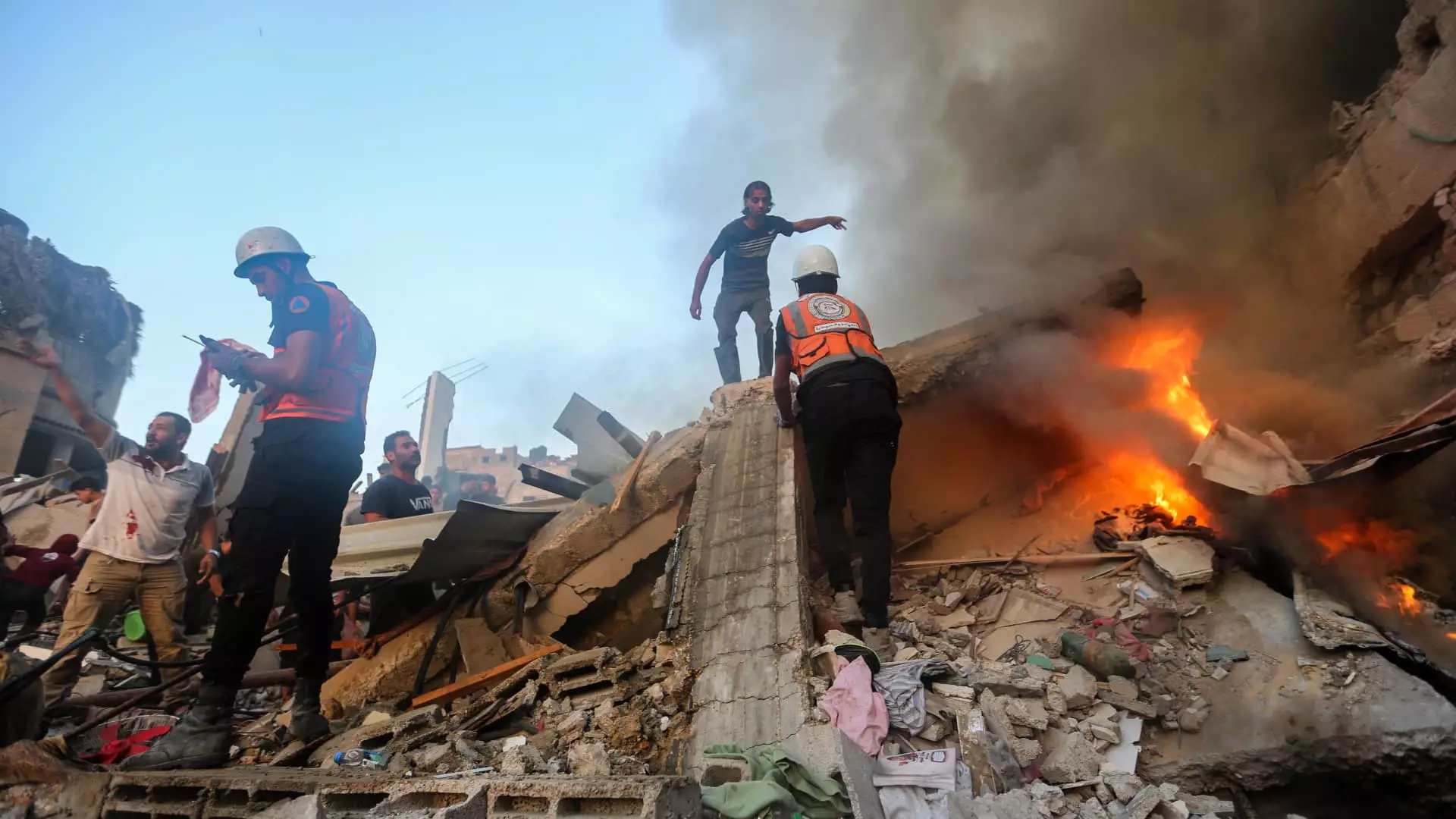The ongoing conflict in Gaza has brought about a dire humanitarian situation, leaving civilians without a safe place to seek refuge. According to a senior UN official, even the presence of a UN flag cannot guarantee the safety of those trapped in the Gaza Strip. This has raised concerns among humanitarian organizations, urging for a ceasefire to ensure the delivery of much-needed food, fuel, and other essentials to the affected population.
Despite growing international calls for a temporary break in the fighting, Israel has rejected the ceasefire proposal. The United States has been pushing for this cessation of hostilities to not only free hostages but also deliver crucial aid to the affected areas. However, Israel’s decision to reject the proposal is connected to the fact that Israeli hostages are still being held by the militant group Hamas.
In a controversial turn of events, the Israel Defense Forces allegedly struck a group of ambulances near the Al-Shifa hospital. According to the Israeli military, these vehicles were being used by Hamas to transport operatives and weapons. The Palestine Red Crescent Society reported that more than a dozen people were killed in the attack. The ambulances were on their way to the Rafah border crossing into Egypt but had to turn around due to road blockages caused by rubble.
The Rising Casualty Numbers
The casualties from the conflict continue to mount, with both sides reporting staggering numbers. According to the Palestinian health ministry in Gaza, over 9,200 people have been killed thus far. Meanwhile, Israel claims that more than 1,400 individuals have lost their lives, with the majority being victims of the Hamas terror attack on October 7th. However, independent verification of these figures has not been possible.
International Diplomatic Efforts
U.S. Secretary of State Antony Blinken recently engaged in diplomatic efforts by meeting with leaders and officials from Arab nations, including Jordan’s King Abdullah II. However, there is a notable disagreement between Blinken and his Egyptian and Jordanian counterparts regarding the approach to the conflict. While Egyptian foreign minister Sameh Shoukry and Jordanian foreign minister Ayman Safadi called for an immediate cessation of attacks, Blinken did not echo their demands.
Within Israel itself, there is also growing discontent and calls for an end to the hostilities. Demonstrators have gathered outside the residence of Prime Minister Benjamin Netanyahu, urging him to step down and bring an end to the ongoing conflict. This only adds to the complexity of the situation, as the public sentiment within Israel reflects the urgent need for resolution.
The Gaza conflict has created an incredibly dangerous environment for civilians, with no safe place to seek protection. Despite international humanitarian calls for a ceasefire, the rejection by Israel and the ongoing hostage situation complicates the path to resolution. The casualties on both sides continue to rise, and diplomatic efforts have so far failed to bridge the gaps in perspectives. As protests within Israel intensify, the urgency for a resolution becomes even more apparent.


Leave a Reply